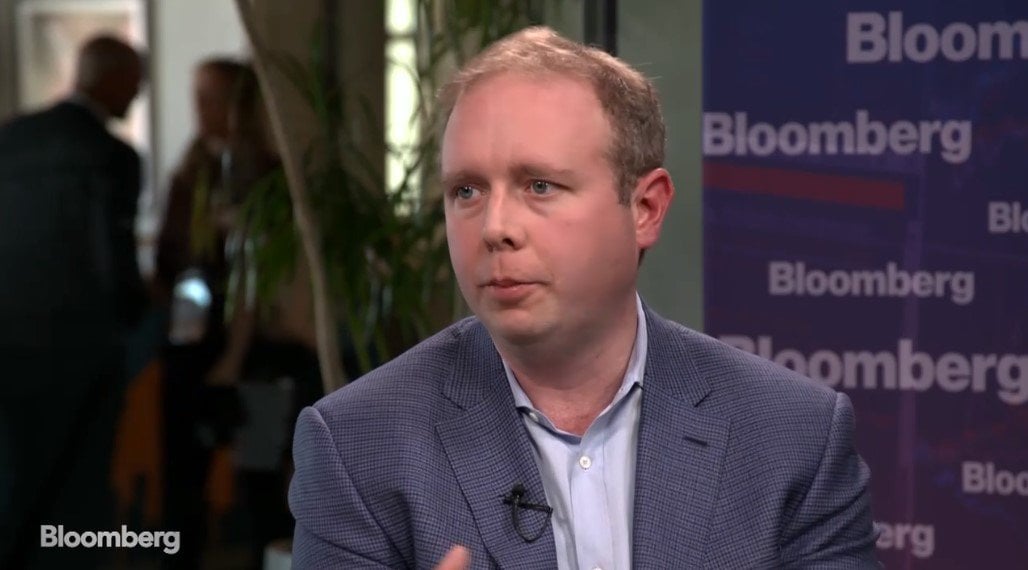Matthew Granade, Point72 chief market intelligence officer, explains how the company uses quant fundamentals in venture capital. He speaks with Bloomberg’s Erik Schatzker at the Robin Hood Investors Conference on “Bloomberg Markets: The Close.” (Source: Bloomberg)
How Point72 Uses Quant Fundamentals In Venture Capital
Q3 hedge fund letters, conference, scoops etc
Transcript
Why don't we begin with this. Most people are probably unaware of the fact that point seventy 72 Steve Goans firm has a venture capital business. Tell us about that.
To launch the venture capital business. Two years ago largely because we saw so many important businesses being built by entrepreneurs starting small growing big and you sort of see that in the explosion of the number of unicorns out there. And that really we were sort of looking at sort of parts of the economy and felt like you can't really understand what's going on without also understanding the private companies. So for example you know with autonomous cars so much of the technology is built by small private companies that grow into big companies and you know obviously it affects Uber but it also affects GM. So we wanted to launch an effort to really understand the private economy and invest in the private economy.
And so it is not strictly for returns only. It's also to educate.
That's right. That's an insane Kate. They'll hold firm. And so so what we did was we took one of the central ideas of points 72 which is a fundamental deep understanding of businesses and we applied it to venture. And so we've built three different practice areas all with deep experts in those areas. We have fintech and machine learning and enterprise and cybersecurity and we invest in those areas and we've been doing it. And each one has kind of come online at different times. We've invested for the last couple of years and have about 35 companies in our portfolio at this point. Now. When people think of Steve Cohen they think of extraordinary returns.
Are you trying to reinvent venture in a way that will deliver better returns than venture capital has traditionally deliver.
Well the best venture capital firms have performed very well. I'm thinking of the industry as a whole. Yes but you're right. That's true. Well the answer your question and we are aspiring for a top this hour returns just like everything Steve does. There's there's no second place we go for the best. And so that's actually what we're trying to do. Now if you're successful.
Returns change obviously or target returns change depending on what the risk free rate is in. But if you're successful in achieving a top Dessau return in this market at this time what would that be to be 20 percent IRR net of fees something like that. It would be pretty good. Yes. Now let's talk a bit about the kinds of insights that you're extracting from this portfolio and how it's informing what point seventy two does. Tell me a bit about that. What have you learned.
Well if you take a if you take a specific area you know so like recently we've been looking a lot at robotics and you know Rob robotics is something that is affecting health care. It's infecting Industria affecting industrial companies. And so you know we'll we'll have sessions where we get four or five private CEOs of robotics companies together with some of our portfolio managers some of our venture investors. And you know we have a conversation about what's what's really the state of the technology where are things going. What's going to happen next. And you know it trickles sort of into the firm in a lot of different ways.
One of the things that increasingly interests us that Bloomberg. And should I think interest anybody in financial markets and it's the reason they brought you here to the Robinhood Investors Conference is the debate over man versus machine. Is it fundamental is it quantitative is it something in the middle that people call quantum until. You've done a lot of work into this into data science into machine learning and artificial intelligence. What kinds of conclusions have you drawn.
Well I think the most important conclusion is it's not verse anything. It's not man versus machine. It's an end in the middle. And what I mean by that is that the people who can help the machines the machines can help the people. And that's really sort of the model we're trying to build towards.
But what can the machines do that the people can't or the people can't do as well as machines.
Well I'll give you an example and there's a great study out of Harvard where they took pathologists and they had them looking at x ray rice and what the study found was that if you did it it was 92 percent right. And if the people did it they were 95 percent right. And if you told the people what the algos said in advance it went to 99 percent right. And so there's there's a real synergy to be had because.






